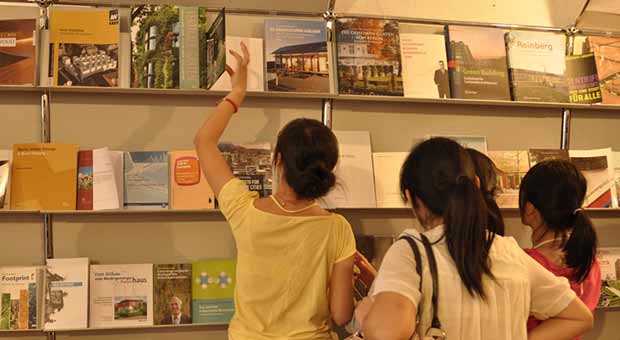In the midst of adverse economic conditions, both nationally and internationally, the dilemma of Cuban publishing industry is changing its nuances and begins to lean on finding self-financing solutions and profitability. In this process the concerns are competition in the world market, the developing new technologies that arguably do not confer immunity to literary works and the indisputable and latent internal factors.
A diagnosis of the marketing possibilities of Cuban books made the young researcher Jacqueline Laguardia Martinez, in her doctoral thesis, to propose alternatives for the insertion of Cuba at fairs in Latin American countries, taking into account the characteristics of the area where we are and the current economic opening of the various actors in the field of culture.
Selling to produce more and better quality requires an analysis of the risks and opportunities of the industry in its real conditions: At what point are the Cuban publishing houses … The international context and change in public require a transformation: how is this process going? The satisfaction with the formulation of these questions is implied. What is indisputable is that positive change has begun.
The approach the researcher offers us reaffirms: “The transformation can be seen especially in the links between the publishing houses with the business sector and in the development of digital publishing which is still very limited. At this time, it is much needed the economic management to be better organized without losing sight of its mission, its message load … ideas … traditions ” .
Under these conditions, researchers in the field have identified the factors behind the barriers present in the process of publishing updates. Among them we can mention the existence of budgeted units, subsidization of prices in national libraries which might be turned into potential, or the fears of literary creators regarding changes and the era of new technologies. Some of these without possible short-term solution, but that the social dialectic will take on new paths.
The 23rd International Book Fair, with headquarters in Fortaleza San Carlos de La Cabaña in Havana showed that digital publishing has extensive marketing opportunities. Therefore, it is not a utopia to think that in the future they will have much more demand and production.
Spiritual care of literature may be well balanced with good ways to generate revenue to cover expenses, profit, finance investments. They don’t deny it . So the young PhD says: “It is necessary to balance the spiritual with the material. It can be achieved by improving the editorial plans, defining what the most successful titles are for reprinting. This will finance those securities that are on a much more limited sector, to be more specific issues. Currently Cuban self-help texts (How to educate family; How to promote healthy eating? …) have great public acceptance and could be an alternative to cover the scientific and technical issues in long runs . “
As she explained later, “there are still trends on crushes, they are made for small runs of books and public demands are exceeded.” That situation, at the end, only brings around the accumulation of unsold copies. Then it should be noted that the search for spirituality does not justify erroneous decision making and forgetting the interests of readers.
The doors of the Latin American market are open to the Cuban books, the diagnosis is made, the transformation of the publishing industry already started and production bottlenecks were identified. To which Jacqueline added : ” We need to prepare catalogs of publications, participate in Latin American trade , request co-publication , negotiate the sale of copyright, to promote professional services, recruit distributors and printers … Latin America stands out as the most attractive market for Cuban exports of books, where Mexico and Venezuela are identified as the most attractive and the most popular genres are novels, the scientific and technical literature, the story and the essays. “
Now they just need to refine current strategies. Importing books in Mexico and Venezuela are free of duty and large book fairs are held: Filven , Guadalajara and Zocalo. They are alternatives that cannot be missed, given the strong interest on Cuban themes.
“The largest Latin American importer is Mexico, followed by Venezuela. Both are the main destinations of intraregional exports ” she explains and concludes: ” I think we have the main thing. Books are a cultural commodity. If the contents are proposed in the best way, making them more attractive, we have won half the battle. You cannot give up the alternatives that are offered. Income generation that would reinvest in the sector would be significant and impossible to despise. We just have to work hard. “
By: Dunia Torres González
Photo: Yailín Alfaro










